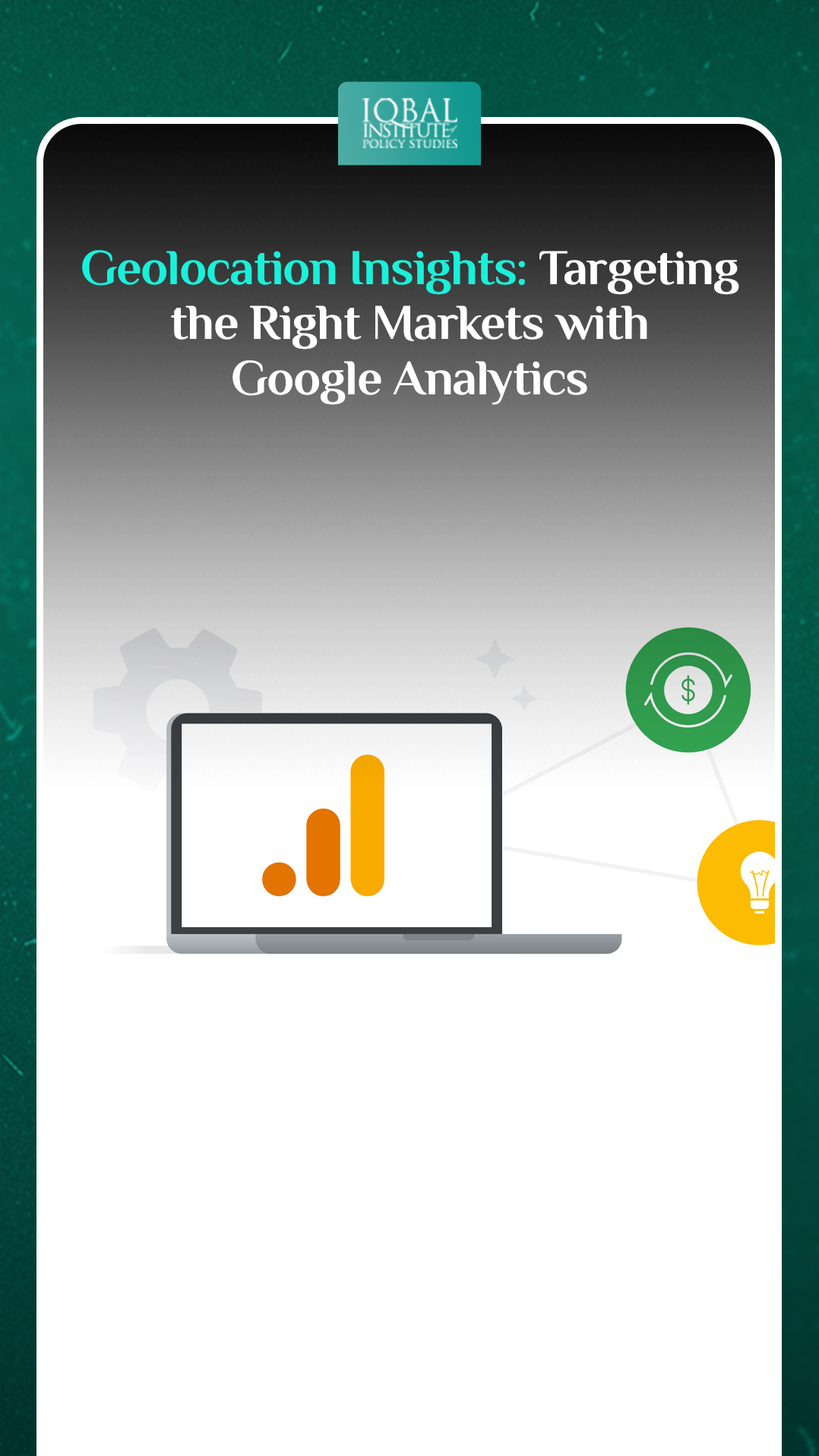In today’s digital age, businesses have access to an abundance of data that can help them make informed decisions and optimize their marketing strategies. One powerful tool for gathering valuable insights is Google Analytics, and when used in conjunction with geolocation data, it becomes a potent weapon in a marketer’s arsenal. Geolocation insights provide businesses with the ability to target the right markets more effectively, tailor their marketing campaigns, and ultimately, boost their bottom line.
In this comprehensive blog, we’ll delve into the world of geolocation insights, focusing on how you can leverage Google Analytics to gain a deeper understanding of your audience’s location-based behavior. We’ll explore the benefits of geolocation data, explain how to set up geolocation tracking in Google Analytics, and provide practical tips on how to use this data to refine your marketing strategies.
The Power of Geolocation Data
Geolocation data is the information that identifies the physical location of a user or device. It includes details like latitude and longitude coordinates, city, state, country, and even zip code. This data can be collected from various sources, including GPS, IP addresses, Wi-Fi networks, and mobile devices. Leveraging geolocation data can provide your business with several advantages:
Audience Segmentation
Geolocation data allows you to segment your audience based on their location. This segmentation can help you create targeted marketing campaigns tailored to specific regions or demographics.
Personalization
Knowing where your users are located enables you to personalize content and offers based on regional preferences, languages, and cultural nuances.
Competitor Analysis:
Analyzing the geographic locations of your competitors’ customers can reveal untapped markets or areas where you can gain a competitive edge.
Optimized Advertising
Geolocation data can be used to enhance your advertising efforts, ensuring that your ads are displayed to users in relevant locations, increasing the chances of conversions.
Localized SEO
Understanding where your website visitors are coming from can aid in optimizing your SEO strategy, helping you rank higher in local search results.
Setting Up Geolocation Tracking in Google Analytics
To harness the power of geolocation insights, you first need to set up geolocation tracking in your Google Analytics account. Here’s a step-by-step guide to get you started:
Log in to your Google Analytics account or create one if you haven’t already.
Select the website or app property for which you want to enable geolocation tracking.
Click on the “Admin” option in the bottom left corner of the screen.
Under the “View” column, click on “View Settings.”
In the “View Settings” page, scroll down to find the “Geographic and Demographic Information” section. Here, you’ll see an option to “Enable Demographics and Interest Reports” and “Enable Users Metric in Reporting.” Ensure that both of these options are enabled.
Click the “Save” button at the bottom of the page to save your settings.
Now that you’ve set up geolocation tracking, Google Analytics will start collecting geolocation data from your website visitors.
Analyzing Geolocation Data
With geolocation tracking enabled, it’s time to dive into the wealth of data at your fingertips. Here are some key insights you can glean from Google Analytics:
Audience Location
The “Geo” section in Google Analytics provides an overview of your audience’s location. You can see which countries, states, and cities your visitors are coming from. This information can help you identify your primary and secondary markets.
Language and Culture
In the same section, you can also view data on the languages your visitors speak and their cultural preferences. This is invaluable for tailoring your content and marketing materials.
Traffic Sources
Analyze where your traffic is coming from based on location. Are certain regions driving more organic traffic? Are specific cities generating more referral traffic? Use this data to refine your marketing channels.
Conversions by Location
Discover which regions are contributing the most to your conversions and revenue. This data can inform your advertising and sales strategies.
Mobile vs. Desktop
Geolocation data can reveal whether users from particular locations are more likely to access your site via mobile or desktop devices. Optimize your website and content accordingly.
Local Keywords
Identify the keywords that users in specific locations are using to find your website. This can inform your local SEO efforts.
Using Geolocation Insights for Marketing Strategies
Now that you have a solid understanding of how to collect and analyze geolocation data, let’s explore how you can use these insights to refine your marketing strategies:
Targeted Advertising
Create location-specific ad campaigns to reach users in regions with high conversion rates or untapped potential.
Localized Content
Tailor your website content, blog posts, and product descriptions to resonate with the cultural preferences and needs of specific regions.
Regional Discounts and Offers
Offer discounts or promotions to users in areas where your sales may be lagging, incentivizing them to make a purchase.
Local SEO Optimization
Optimize your website for local search by using relevant keywords and creating location-specific landing pages.
Content Scheduling
Schedule social media posts and email campaigns at times that align with the peak activity of your target audience in different time zones.
Expand into New Markets
Use geolocation insights to identify promising markets you haven’t yet tapped into and devise market-entry strategies.
Conclusion
Geolocation insights, powered by Google Analytics, are a game-changer for businesses looking to optimize their marketing strategies and boost their ROI. By understanding where your audience is located and tailoring your efforts accordingly, you can deliver a more personalized and engaging experience to your users. Whether you’re a small local business or a global enterprise, geolocation data is a valuable tool for driving growth and staying ahead of the competition. So, don’t miss out on the opportunities it offers—start harnessing the power of geolocation insights today!
This article is written by Radma Nouman. Radma is a research analyst at the Iqbal Institute of Policy Studies (IIPS).



Leave a Reply